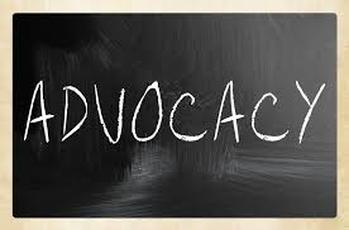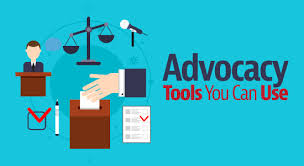|
What is Child Advocacy?
Child advocacy refers to a range of individuals, professionals and advocacy organizations who speak out on the best interests of children. An individual or organization engaging in advocacy typically seeks to protect children's rights which may be abridged or abused in a number of areas. A child advocate typically represents or gives voice to an individual or group whose concerns and interests are not being heard. Child advocacy can be done at the micro level (for one child or a few children), mezzo level (for group of children or at a community level) or macro level (for a category of children affected by a social issue). Read more on Child Advocacy here. |
A History of Child Advocacy in the PTA
For more than 100 years, National Parent Teacher Association (National PTA) has worked toward bettering the lives of every child in education, health and safety. Founded in 1897 as the National Congress of Mothers by Alice McLellan Birney and Phoebe Apperson Hearst, National PTA is a powerful voice for all children, a relevant resource for families and communities, and a strong advocate for public education. Today’s PTA is a network of millions of families, students, teachers, administrators, and business and community leaders devoted to the educational success of children and the promotion of family engagement in schools. |
Legislation
Washington State PTA’s Legislative Agenda for 2023 - 2024
Every year Washington State PTA takes legislative priorities focusing on the well-being and education of all children to Olympia for the Legislative Assembly in October. Below is a list of their top 5 legislative priorities for 2024.
Addressing the Student Mental Health Crisis
Washington State PTA shall support legislation or policies that ensure all students have access to the behavioral and mental health resources they need to thrive, including funding for:
Addressing Critical Gaps in Education Funding
Washington State PTA shall advocate for legislation or policies that help resolve critical education funding gaps and inequities with predictable, progressive, and sustainable revenue sources including, but not limited to:
Preventing and Reducing Gun Violence and Suicide
Washington State PTA shall support legislation or policies that prevent and reduce gun violence and suicide including:
Addressing Funding, Inclusion, and Supports in Special Education
Washington State PTA shall advocate for legislation or policies that support students with disabilities and their families by:
Building and Maintaining Safer School Facilities
Washington State PTA shall advocate for legislation or policies that:
Every year Washington State PTA takes legislative priorities focusing on the well-being and education of all children to Olympia for the Legislative Assembly in October. Below is a list of their top 5 legislative priorities for 2024.
Addressing the Student Mental Health Crisis
Washington State PTA shall support legislation or policies that ensure all students have access to the behavioral and mental health resources they need to thrive, including funding for:
- Reduced ratios of students to mental health professionals.
- Programs and incentives to recruit, train, and retain mental health professionals.
- Resources to assist families.
- Training and support for educators and administrators.
Addressing Critical Gaps in Education Funding
Washington State PTA shall advocate for legislation or policies that help resolve critical education funding gaps and inequities with predictable, progressive, and sustainable revenue sources including, but not limited to:
- Resources for students needing additional academic/physical/emotional supports.
- Services for students with disabilities.
- Categorical funding to support highly mobile students.
- Student transportation.
- Unfunded mandates to school districts.
- School construction.
Preventing and Reducing Gun Violence and Suicide
Washington State PTA shall support legislation or policies that prevent and reduce gun violence and suicide including:
- Addressing the disproportionate impact on BIPOC and LGBTQ+ youth.
- Funding community-based prevention and intervention programs.
- Promoting safe storage of medication and firearms.
- Prohibiting the sale or transfer of military-style assault weapons.
- Expanding existing law to prohibit firearms where families and youth congregate in public places, such as parks, zoos, and libraries.
- Restoring local government authority to enhance state firearm regulations to protect children and youth.
Addressing Funding, Inclusion, and Supports in Special Education
Washington State PTA shall advocate for legislation or policies that support students with disabilities and their families by:
- Fully funding special education services with no caps on funding enrollment.
- Developing solutions to address a statewide special education staffing shortage.
- Promoting full inclusion in general education classrooms.
- Promoting high leverage teaching practices.
- Assessing needs for and providing assistive technology and multi-tiered systems of support.
- Simplifying the safety net reimbursement process to school districts.
- Banning student isolation in schools.
Building and Maintaining Safer School Facilities
Washington State PTA shall advocate for legislation or policies that:
- Fund school safety changes, including emergency signs, improving indoor air quality and other environmental hazards, seismic upgrades, and an earthquake early warning system in all schools.
- Require safety plans to include persons with disabilities and all people in school buildings, and to conduct annual emergency reunification training.
- Increase the transparency of the condition of school facilities to allow public review.
Contacting Your Legislators
Currently, WSPTA does not have a template/form letter for contacting legislators. However, in this busy time of the session, it is recommended to send an email or call your legislators directly to express support or concerns that are on our high priority list. You can find your legislator's contact information at the bottom of this page.
Remember to keep the tone respectful, limit the topic to one per email, ask your legislator for their position, ask for their support or assistance to change the bill, and provide contact information so they can verify that you are a constituent. It is good practice to ask them for a response and/or contact you, but realize that they are entering the half-way point in session, so activities start to speed up.
If you call your legislator, keep the message short: who you are, why you are calling, specific bill number (if appropriate) and the best number to reach you. Speak slowly because the legislature uses a program that translates your call into an email; sometimes the results are very funny. Keep it short, to the point, and ask for a return call.
Currently, WSPTA does not have a template/form letter for contacting legislators. However, in this busy time of the session, it is recommended to send an email or call your legislators directly to express support or concerns that are on our high priority list. You can find your legislator's contact information at the bottom of this page.
Remember to keep the tone respectful, limit the topic to one per email, ask your legislator for their position, ask for their support or assistance to change the bill, and provide contact information so they can verify that you are a constituent. It is good practice to ask them for a response and/or contact you, but realize that they are entering the half-way point in session, so activities start to speed up.
If you call your legislator, keep the message short: who you are, why you are calling, specific bill number (if appropriate) and the best number to reach you. Speak slowly because the legislature uses a program that translates your call into an email; sometimes the results are very funny. Keep it short, to the point, and ask for a return call.
Advocacy Links
|


